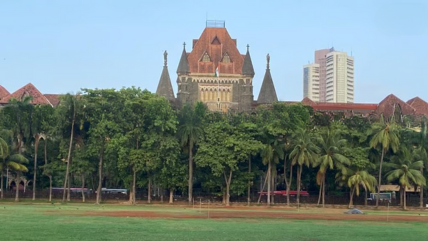The Bombay High Court will begin enforcing its new video conferencing rules for court hearings in Maharashtra, Goa, and the Union Territories of Daman and Diu, and Dadra and Nagar Haveli from December 29. This follows a notification issued in the gazette on December 19.
The “High Court of Bombay Rules for Video Conferencing for Courts 2022” aims to modernize judicial operations. These regulations will be applicable to a variety of courts and tribunals, including Family Courts, Labour Courts, Industrial Courts, Co-operative Courts, Motor Accident Claims Tribunals, and School Tribunals.
According to the new rules, all video conference hearings will be officially recognized as judicial proceedings. Participants must submit government-issued identity proof via email or provide personal details if they are unable to present official identification. Unauthorized recording of the proceedings is strictly prohibited to ensure security during remote hearings.
To ensure the proper functioning of remote hearings, designated coordinators will be responsible for managing the technical aspects at both the court and remote locations. Participants are required to use stable internet connections with desktops or laptops, ensuring a smooth and uninterrupted experience.
Furthermore, the rules stipulate that the facilities used for remote hearings must ensure the privacy and confidentiality of all participants. Coordinators will also ensure that all technical systems are fully operational before hearings begin. They are tasked with verifying that participants are ready at least 30 minutes before the scheduled hearing and confirming that no unauthorized recording devices are present.
The new rules also cater to situations where witnesses are abroad or in custody, allowing them to testify through secure video links provided by local authorities or Indian consulates. This ensures that witnesses can participate even when they are located far from the court.
For a party to participate in a video conference hearing, they must submit a request in a prescribed format, ideally after discussing it with other involved parties. The court will evaluate the request and schedule the hearing accordingly. All relevant documents must be shared electronically before the hearing to allow sufficient time for preparation.
Additionally, the rules permit the conducting of judicial remand procedures, framing of charges, examination of accused individuals, and proceedings under Section 164 of the Code of Criminal Procedure via video conferencing. However, judicial or police remand cannot be granted through video conference except in exceptional cases, which must be recorded in writing.
In special cases, the court may permit the examination of witnesses or accused under Section 164 or record statements under Section 313 of the Code of Criminal Procedure via video conference, provided proper measures are in place to prevent coercion, threats, or undue influence.
Lastly, the costs associated with video conferencing, including technical expenses incurred by the requesting parties, will typically be borne by the party requesting the remote hearing, unless the court orders otherwise. This helps ensure that the financial responsibility is clear and fair.
These new video conferencing rules reflect the Bombay High Court’s commitment to improving accessibility, efficiency, and security in court hearings, particularly as virtual hearings become a more integral part of the judicial process. The move is part of the broader trend of adopting technology to modernize the legal system while maintaining its integrity.

















